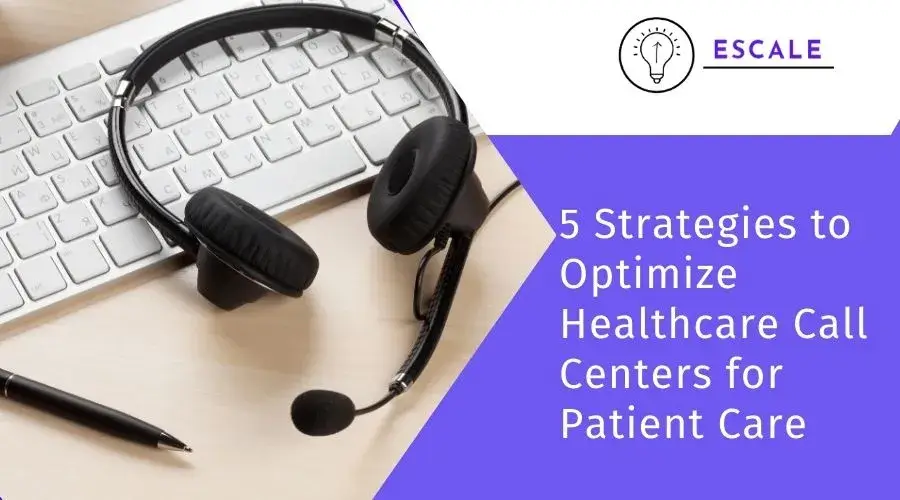The customer experience in healthcare is even more critical than it was in the competitive world of healthcare. Medical call centers are the hub for patient communication and help shape the healthcare journey. As modern patient demands increase and healthcare services become more complex, businesses will have to use call centers better to provide better patient experiences and care.
The Evolution of Healthcare Call Centers: What You Need to Know
Patient communication demands have changed drastically in the medical sector in the last 10 years. Long-ago call centers where only appointments were taken and routine questions were answered have become modern centers of patient interaction. This has been the result of various forces:
Changing Patient Expectations
Modern patients expect:
- Access to medical records at your fingertips, 24/7
- Personalized service delivery
- Immediate response to queries
- Seamless digital interactions
- Same experience on all channels & touchpoints.
Technological Advancements
The healthcare communication industry has been changed by:
- Cloud-based communication systems
- Artificial Intelligence and chatbots
- Natural Language Processing
- Advanced analytics tools
- Integrations with current medical systems
This evolution is essential for health systems as they build their patient messaging. The new healthcare call center must marry the science with the persona so productivity doesn’t sacrifice empathy and human connection.
5 Medical Call Centers That Make The Patient Experience Better
1. Implement Multi-Channel Communication Options
Communication in health care today is also very flexible and accessible. Traditional phone assistance is still necessary, but patients today need multiple ways to reach their doctors. An integrated multi-channel system with voice, digital and mobile solutions that can seamlessly connect to deliver the one patient experience.
The main components of an excellent multi-channel communications campaign are:
-
Voice Communication Systems
- Cutting-edge IVR (Interactive Voice Response) systems.
- Call recording and call quality checking.
- Automated appointment reminders
- Voice-to-text transcription services
-
Digital Platforms
- Secure patient portals
- HIPAA-compliant email systems
- Live chat support
- Online appointment scheduling
-
Mobile Solutions
- Custom healthcare facility apps
- SMS/text messaging services
- Mobile-responsive websites
- Push notification systems
The combination of these channels allows for reliable service for various patient needs. Healthcare organizations must provide seamless channels so patients can initiate interaction on one platform and carry on with the same interaction on another without being redundant or in context.
2. Benefit from Powerful Call Routing and Priority Systems.
Rapid call routing is essential to cope with a high call volume and prioritize the most critical calls. An intelligent routing system can make a difference in patient satisfaction and efficiency.
An essential part of modern call routing systems is:
1. Priority-Based Routing
- Emergency call identification
- VIP patient handling
- Chronic condition management
- Special needs accommodation
2. Intelligent Queue Management
- Virtual hold capabilities
- Estimated wait time announcements
- Scheduled callback options
- Skills-based routing
When these systems are put into place, it should be done with great care:
- Patient demographics and needs
- Call volume patterns
- Available resources
- Service level agreements
- Emergency protocols
- Staff expertise levels
3. Provide Comprehensive Agent Training
Agent training is the crux of excellent patient experience. A healthcare call center agent with the proper training and knowledge can be an asset to your success in patient service.
The entire training program should include the following:
- Medical Knowledge and Terminology
- Standard medical terms and ideas
- Other symptoms and common diseases.
- Healthcare service protocols
- Emergency handling
- Medication management basics
- Communication Skills Development
The trainer must teach the necessary communication skills:
- Active listening techniques
- Empathy and Emotional Intelligence
- Clear and concise explanation skills
- Cultural sensitivity
- Conflict resolution methods
Technical Proficiency
The Agents need to know some technical things, such as:
- EHR system navigation
- Call center software operation
- Multi-channel communication tools
- Documentation procedures
- Quality monitoring systems
4. Use Data Analytics to Improve Using Big Data Analytics Continuously.
Data analytics is essential for calling center optimization. Healthcare companies will have to have detailed analytics programs in place to monitor, assess and optimize services.
Key analytics focus areas include:
Performance Metrics
Monitor and analyze:
- Average handling time
- First-call resolution rates
- Patient satisfaction scores
- Call abandonment rates
- Service level adherence
- Quality assurance scores
Operational Insights
The collected data helps identify:
- Hourly call-peaks and staffed requirements
- Common patient inquiries and concerns
- Training opportunities and gaps
- Process bottlenecks and inefficiencies
- Successful resolution patterns
Healthcare institutions should use this information to:
- Optimize staffing levels
- Improve training programs
- Enhance call routing systems
- Develop self-service solutions
- Develop specialized patient education resources
5. Integrate with Electronic Health Records (EHR)
Integration of EHR changes the nature of call centers, with complete patient data at the fingertips of the agents. The fusion also allows for better choices and the personalization of services.
Benefits of EHR integration include:
Improved Patient Care
- Direct access to medical records is available right now
- Real-time appointment scheduling
- Medication management support
- Test result communication
Conclusion
Optimizing the call center processes for a better patient experience requires the right mix of technology, training, and analytics. With these five critical approaches, healthcare companies can turn their call centers into assets to significantly increase patient satisfaction and healthcare delivery.
Modern call centers in healthcare need to succeed on:
- Constant system assessment and tuning
- Frequent updates to keep up with changing patient needs
- Regular employee training and development
- Proper utilization of technology and data
- High focus on patient-centric service
The more organizations that can successfully execute these strategies, the higher patient satisfaction, health outcomes, and competitiveness in the healthcare space.



